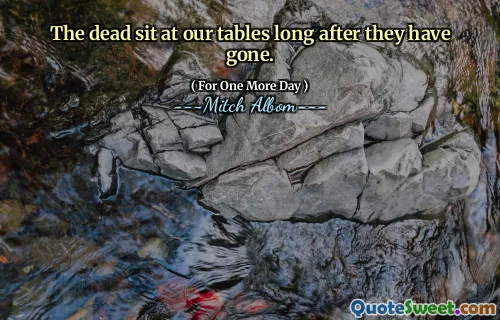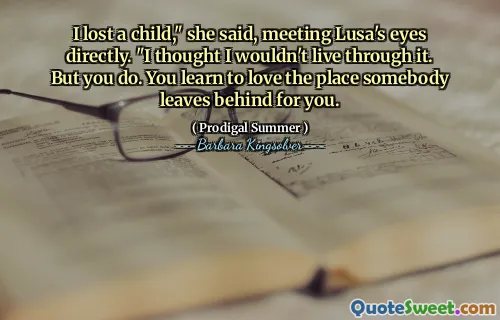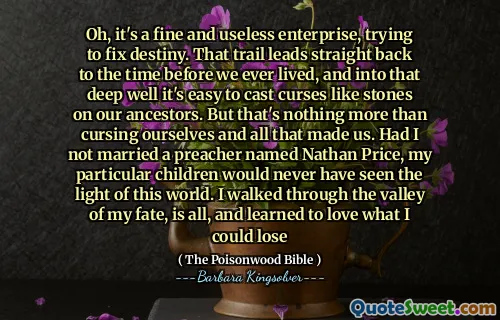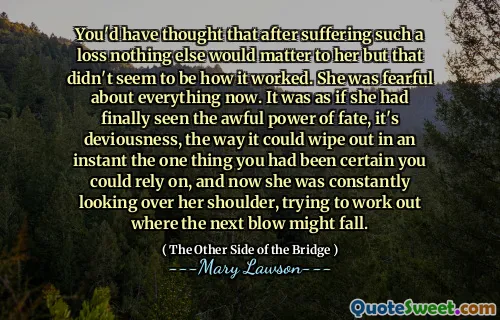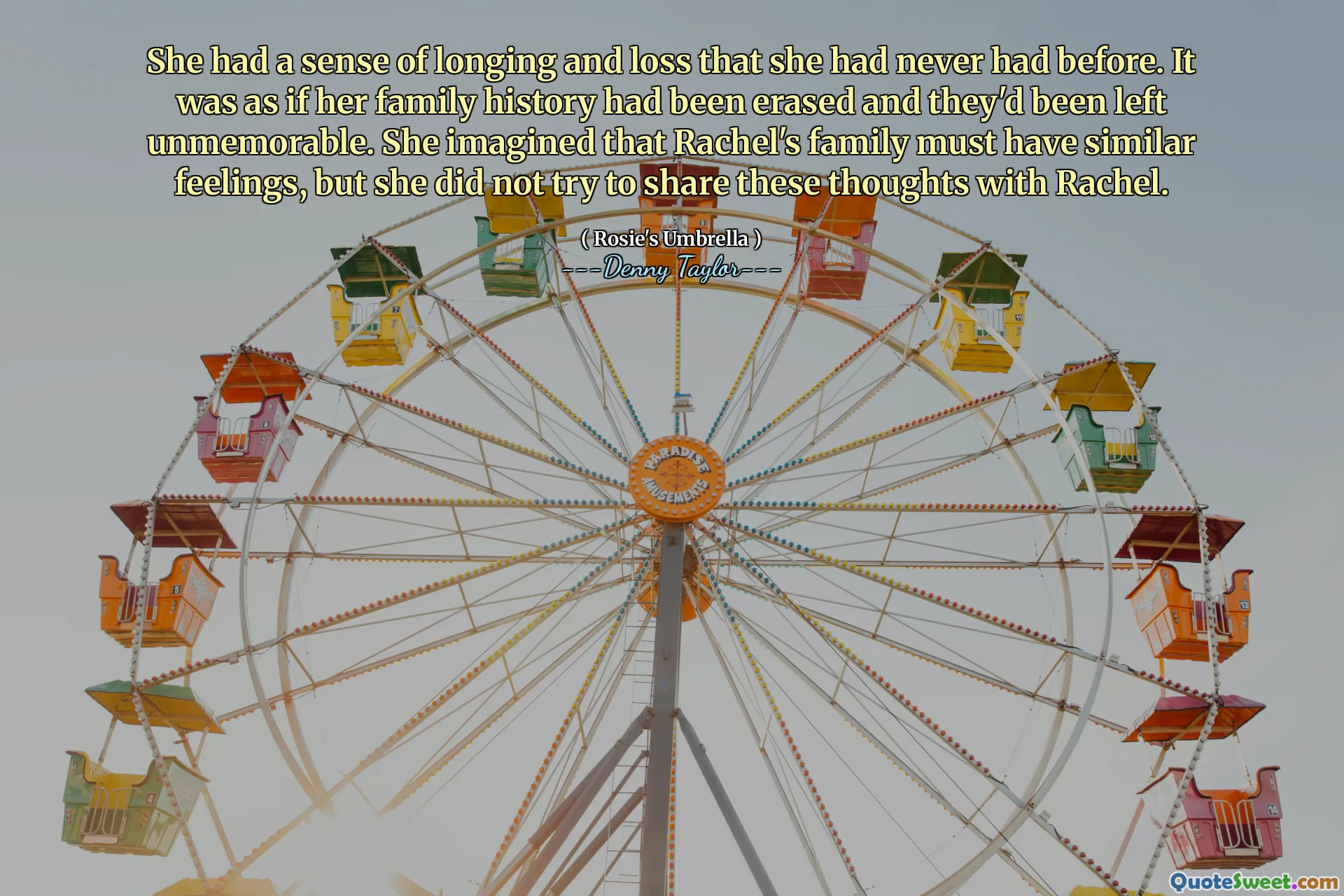
She had a sense of longing and loss that she had never had before. It was as if her family history had been erased and they'd been left unmemorable. She imagined that Rachel's family must have similar feelings, but she did not try to share these thoughts with Rachel.
The quote captures a profound emotional experience tied to memory and identity. The speaker's feeling of longing and loss highlights how integral family history is to one's sense of self. When that history is wiped away or unrecorded, it can evoke a deep void, as though a part of personal identity has been erased. The comparison to Rachel’s family suggests a recognition that this experience of amnesia or forgetfulness might be more common than we imagine and potentially shared among others who have similarly lost touch with their roots or heritage. Yet, the reluctance to share these feelings reveals the vulnerability and isolation tied to such loss. It’s a private grief that may feel too personal or complex to communicate, underscoring how our memories and heritage profoundly connect us yet can leave us isolated when they vanish. This passage poignantly illustrates the human need to remember where we come from, not only to honor past generations but to affirm our own place in the continuum of family and history. It makes the reader reflect on how memory, both individual and collective, shapes our identity and how fragile and precious it is when those memories start to disappear. Overall, the quote beautifully expresses the themes of loss, identity, and the silent struggle many face when separated from their family stories, a motif particularly resonant in stories like 'Rosie's Umbrella'.

